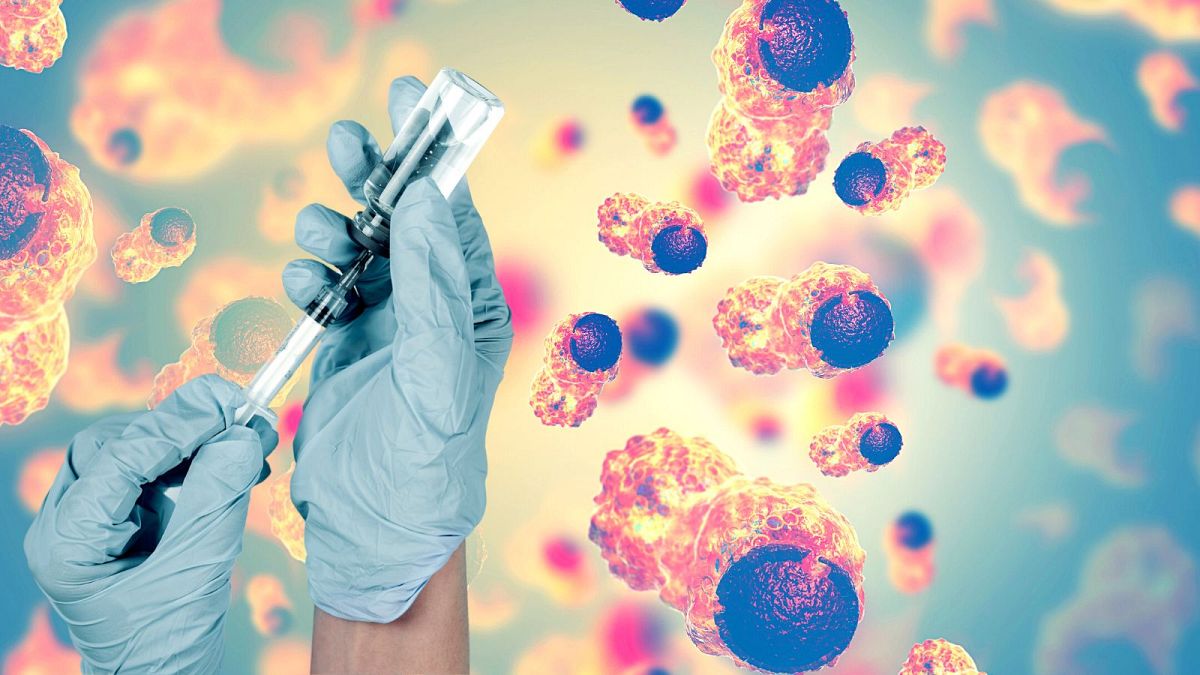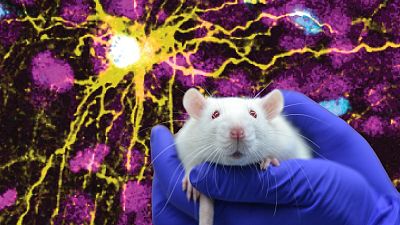Early clinical trial results suggest a genetically engineered version of the virus known to cause cold sores shows promise in treating a range of advanced cancers.
A genetically modified version of the herpes virus has delivered powerful results against advanced cancers, according to early clinical trial results.
Researchers found that RP2 – a new version of the herpes simplex virus – showed signs of effectiveness in a quarter of patients with a range of advanced cancers.
Patients on the trial had cancers including skin, oesophageal and head and neck cancer and had exhausted other treatment options, including checkpoint inhibitor immunotherapy.
“Our study shows that a genetically engineered, cancer-killing virus can deliver a one-two punch against tumours – directly destroying cancer cells from within while also calling in the immune system against them,” study leader Kevin Harrington, Professor of Biological Cancer Therapies at The Institute of Cancer Research, said in a statement.
He stressed it was rare to see such good response rates in early-stage clinical trials, whose primary aim is to test the safety of a treatment, especially when they involve patients with very advanced cancers for whom current treatments have stopped working.
“Our initial trial findings suggest that a genetically engineered form of the herpes virus could potentially become a new treatment option for some patients with advanced cancers – including those who haven’t responded to other forms of immunotherapy,” Harrington said.
“I am keen to see if we continue to see benefits as we treat increased numbers of patients”.
The early findings were presented at the 2022 European Society for Medical Oncology Congress (ESMO).
How does it work?
The genetically engineered herpes virus is designed to have a dual action against the tumours it’s directly injected into.
Not only does it multiply inside cancer cells to burst them from within, but it also blocks a specific protein – known as CTLA-4 – to throw the immune system into full swing and get it to more effectively kill cancer cells.
Harrington’s team at the Institute of Cancer Research and the Royal Marsden NHS Foundation Trust assessed the cancer-killing virus on its own in nine patients, and in combination with the immunotherapy nivolumab in an initial 30 patients.
The ongoing Phase I trial, sponsored by the drug’s manufacturer Replimune, aims to test the safety and dosage of RP2, as well as its ability to shrink tumours.
Cancer-free for two years
Three out of nine patients treated with RP2 on its own benefitted from the treatment and saw their tumours shrink.
One of them saw his tumour disappear completely and remains free of cancer.
Krzysztof Wojkowski, a 39-year-old builder from West London, was diagnosed with a type of salivary gland cancer in 2017.
After multiple surgeries, he was told that there were no treatment options left, before being given the opportunity to join the RP2 trial in 2020.
“It was my final lifeline. I had injections every two weeks for five weeks which completely eradicated my cancer,” he said.
He has been cancer-free for two years.
“It’s a true miracle, there is no other word to describe it. I’ve been able to work as a builder again and spend time with my family; there’s nothing I can’t do”.
Seven out of 30 patients who received both RP2 and the immunotherapy nivolumab also benefitted from treatment.
In this group, four out of nine patients with melanoma skin cancer, two out of eight patients with the eye cancer uveal melanoma, and one out of three patients with head and neck cancer saw their cancer’s growth halt or shrink.
Of the seven patients receiving the combination who saw a benefit, six remained progression-free at 14 months.
Positive impact for mild side effects
Researchers looked at patient biopsies before and after injections of the RP2 virus and found positive changes in the area immediately surrounding the tumour.
Injections led to more immune cells in the area and “switched on” genes linked to the immune response cracking down on cancer cells, the authors explained.
Researchers found that most side effects of RP2 were mild, the most common being fever, chills, and fatigue.
The team now hopes to continue exploring the potential of this strategy in a larger number of patients.
“Viruses are one of humanity’s oldest enemies, as we have all seen over the pandemic. But our new research suggests we can exploit some of the features that make them challenging adversaries to infect and kill cancer cells,” said Professor Kristian Helin, Chief Executive of The Institute of Cancer Research, London.
“It’s a small study but the initial findings are promising. I very much hope that as this research expands we see patients continue to benefit”.



